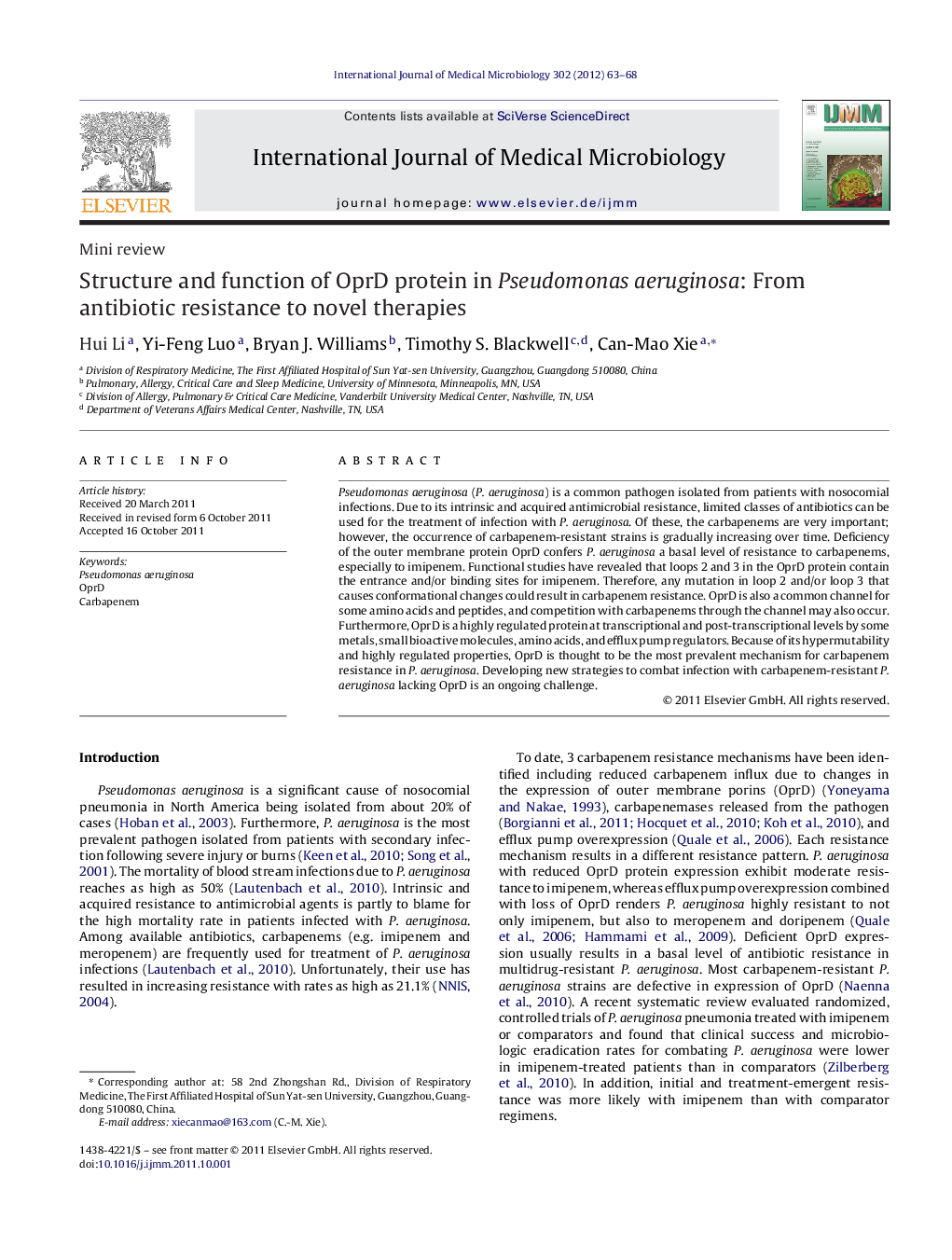| کد مقاله | کد نشریه | سال انتشار | مقاله انگلیسی | نسخه تمام متن |
|---|---|---|---|---|
| 2054017 | 1543710 | 2012 | 6 صفحه PDF | دانلود رایگان |

Pseudomonas aeruginosa (P. aeruginosa) is a common pathogen isolated from patients with nosocomial infections. Due to its intrinsic and acquired antimicrobial resistance, limited classes of antibiotics can be used for the treatment of infection with P. aeruginosa. Of these, the carbapenems are very important; however, the occurrence of carbapenem-resistant strains is gradually increasing over time. Deficiency of the outer membrane protein OprD confers P. aeruginosa a basal level of resistance to carbapenems, especially to imipenem. Functional studies have revealed that loops 2 and 3 in the OprD protein contain the entrance and/or binding sites for imipenem. Therefore, any mutation in loop 2 and/or loop 3 that causes conformational changes could result in carbapenem resistance. OprD is also a common channel for some amino acids and peptides, and competition with carbapenems through the channel may also occur. Furthermore, OprD is a highly regulated protein at transcriptional and post-transcriptional levels by some metals, small bioactive molecules, amino acids, and efflux pump regulators. Because of its hypermutability and highly regulated properties, OprD is thought to be the most prevalent mechanism for carbapenem resistance in P. aeruginosa. Developing new strategies to combat infection with carbapenem-resistant P. aeruginosa lacking OprD is an ongoing challenge.
Journal: International Journal of Medical Microbiology - Volume 302, Issue 2, March 2012, Pages 63–68